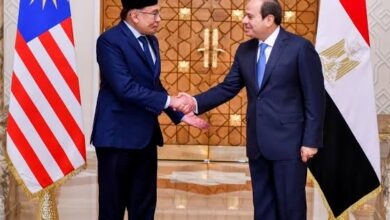How The World Bank Broke Its Promise To Protect The Poor
ICIJ – Yaseer Abdallh
Beneath a gloomy white sky, more than 100 armed police poured into the slum of Badia East in the teeming megacity of Lagos, Nigeria.
As they advanced, they cracked their batons on the unpaved streets and against the ramshackle walls of the shanties.
“If you love your life, move out!” the officers shouted.
Thousands of people grabbed what belongings they could carry and fled.
Then a line of hulking excavators moved in, using their hydraulic claws to smash homes into pieces. Within hours, the neighborhood was a ruin.
Bimbo Omowole Osobe, a former resident of the Badia East slum who was evicted in 2013 when her neighborhood was demolished, sits in the clinic where she now sleeps at night in the reception area. Osobe joined with volunteers from Justice and Empowerment Initiatives, an NGO where she works with other slum dwellers to fight demolitions. A child in the slums of Orisunbare Ijora Badia in Lagos, Nigeria. George Osodi / International Consortium of Investigative Journalists
Bimbo Omowole Osobe briefly lost track of her children in the chaos. When she returned to the community hours later, her concrete-block home and two small shops were gone.
“It’s like when a woman goes in for labor, and the baby comes out dead,” she said. “That’s how it felt to me.”
The Lagos state government flattened Badia East in February 2013 to clear land in an urban renewal zone financed by the World Bank, the global lender committed to fighting poverty. The neighborhood’s poor residents were cast out without warning or compensation and left to fend for themselves in a crowded, dangerous city.
Evictions like the one in Badia East aren’t supposed to happen in the middle of projects backed by the World Bank.
For more than three decades, the lender has maintained a set of “safeguard” policies that it claims have brought about a more humane and democratic system of economic development. Governments that borrow money from the bank can’t force people from their homes without warning. Families evicted to make way for dams, power plants or other big projects must be resettled and their livelihoods restored.
Bimbo Omowole Osobe briefly lost track of her children in the chaos. When she returned to the community hours later, her concrete-block home and two small shops were gone.
“It’s like when a woman goes in for labor, and the baby comes out dead,” she said. “That’s how it felt to me.”
The Lagos state government flattened Badia East in February 2013 to clear land in an urban renewal zone financed by the World Bank, the global lender committed to fighting poverty. The neighborhood’s poor residents were cast out without warning or compensation and left to fend for themselves in a crowded, dangerous city.
Evictions like the one in Badia East aren’t supposed to happen in the middle of projects backed by the World Bank.
For more than three decades, the lender has maintained a set of “safeguard” policies that it claims have brought about a more humane and democratic system of economic development. Governments that borrow money from the bank can’t force people from their homes without warning. Families evicted to make way for dams, power plants or other big projects must be resettled and their livelihoods restored.
The bank’s commitment, it says, is to “do no harm” to people or the environment.
The World Bank has broken its promise.
Over the past decade, the bank has regularly failed to enforce its rules, with devastating consequences for some of the poorest and most vulnerable people on the planet, an investigation by the International Consortium of Investigative Journalists, The Huffington Post and other media partners has found.
The World Bank often neglects to properly review projects ahead of time to make sure communities are protected, and frequently has no idea what happens to people after they are removed. In many cases, it has continued to do business with governments that have abused their citizens, sending a signal that borrowers have little to fear if they violate the bank’s rules, according to current and former bank employees.
“There was often no intent on the part of the governments to comply — and there was often no intent on the part of the bank’s management to enforce,” said Navin Rai, a former World Bank official who oversaw the bank’s protections for indigenous peoples from 2000 to 2012. “That was how the game was played.”
In March, after ICIJ and HuffPost informed World Bank officials that the news outlets had found “systemic gaps” in the institution’s protections for displaced families, the bank acknowledged that its oversight has been poor, and promised reforms.
“We took a hard look at ourselves on resettlement and what we found caused me deep concern,” Jim Yong Kim, the World Bank’s president, said in a statement.
The scope of “involuntary resettlement,” as the bank calls it, is vast. From 2004 to 2013, the bank’s projects physically or economically displaced an estimated 3.4 million people, forcing them from their homes, taking their land or damaging their livelihoods, ICIJ’s analysis of World Bank records reveals.
The true figure is likely higher, because the bank often fails to count or undercounts the number of people affected by its projects.
A team of more than 50 journalists from 21 countries spent nearly a year documenting the bank’s failure to protect people moved aside in the name of progress. The reporting partners analyzed thousands of World Bank records, interviewed hundreds of people and reported on the ground in Albania, Brazil, Ethiopia, Honduras, Ghana, Guatemala, India, Kenya, Kosovo, Nigeria, Peru, Serbia, South Sudan and Uganda.
In these countries and others, the investigation found, the bank’s lapses have hurt urban slum dwellers, hardscrabble farmers, impoverished fisherfolk, forest dwellers and indigenous groups — leaving them to fight for their homes, their land and their ways of life, sometimes in the face of intimidation and violence.





